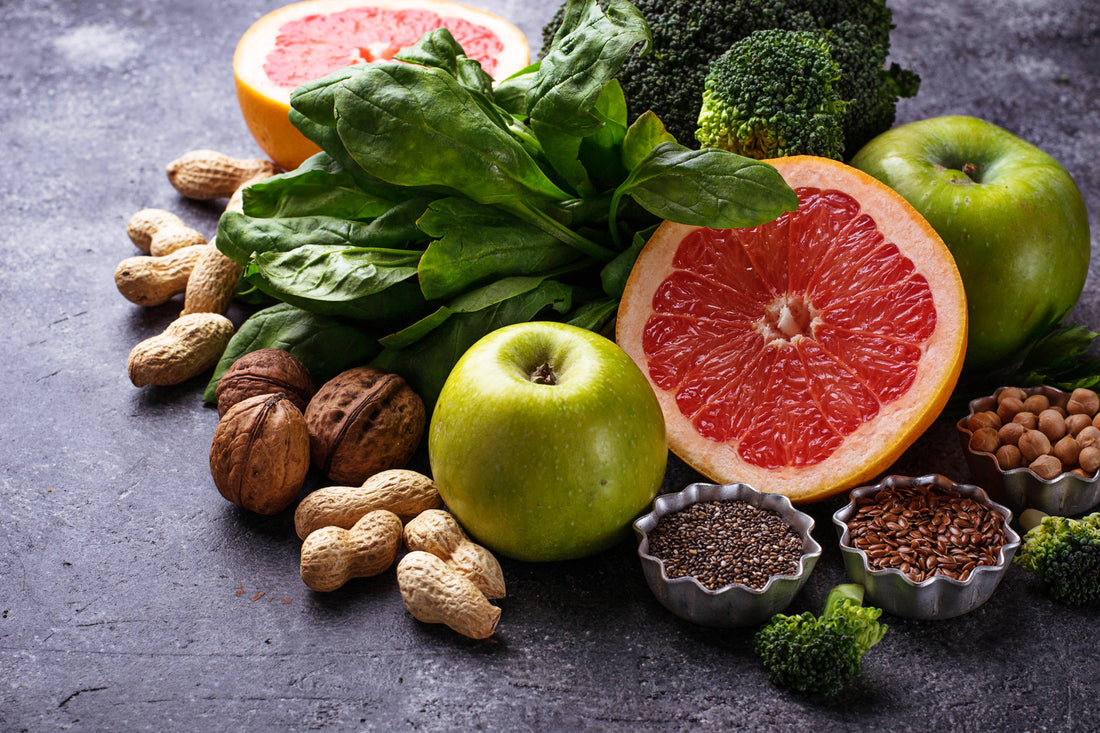
7 highlights for an alkaline diet
Share
Today we start our series of 7 advantages on how you can benefit from an alkaline diet.
The premise of an alkaline diet is that the nutrients found in supplements, alkalizing foods, and water can bring the body back into balance.
These vitamins, minerals and herbs provide the body with renewed energy, vitality and better health.
Alkaline foods and water must be consumed to provide the body with nutrients. Above all, they neutralize acids and toxins in the blood, lymph, tissue and cells.
Here are my 7 highlights and background information on how you can follow an alkaline diet:
1. Reduce consumption of sugar and products made from sugar including
Lemonades
Pies
Ice cream
Jell-O
Jams and jellies
artificial juices
pudding
donuts
corn syrup
sweetened drinks
Cookies
Breakfast cereal
Liqueurs
Soft drinks
2. Avoid consuming processed foods and condiments including
Ketchup
salad dressings
Pickles
cold cuts
Canned fruit
Breads
Cheese dips
peanut butter
prepared seafood
cracker
Canned soups
hot dog
sweetened yogurt
The reason for this is that they favor the production of acids in our body.
3. Avoid cooking & heating food & drinks in the microwave
Not only does the microwave not always heat at the same time, so certain pathogens are not killed at certain points. Plasticizers in the dishes or packaging used can also be transferred to the food or drinks and harm your health.
Rule of thumb related to heat resistance:
Fat-soluble vitamins – longer cooking methods
Vitamin A (retinoids) for the visual process, development process of cells
Vitamin D ( Calciferol ) for blood formation, brain, growth and nerves
Vitamin E (tocopherol) for metabolism
Vitamin K (phylloquinone) for blood clotting
Water-soluble vitamins – short and gentle preparation
Vitamin B1 (thiamine)
Vitamin B2 (riboflavin)
Vitamin B3 (niacin)
Vitamin B5 (pantothenic acid)
Vitamin B6 (pyridoxine)
Vitamin B7 (biotin)
Folic acid
Vitamin B12 (cobalamin)
Vitamin C (ascorbic acid)
4. Avoid dairy products, meat, fried foods and fast food as they are acid forming
pasteurized milk
Canned or dry milk
butter
Hard cheese
cottage cheese
Ice cream
5. Increase your intake of raw vegetables and raw fresh fruits (without sugar)
Try to include raw vegetables with every meal.
If you only have a sparrow breakfast that consists only of toast or cereal, then skip the toast and replace it with fresh fruit or vegetable juices instead.
Are you the sandwich type at lunch? Then try also eating a raw vegetable salad or a vegetable juice.
Here's how to do it: Eat a large salad before eating a heavy main dish for dinner. This way, you can make sure you eat the entire salad before you feel too full.
6. Grains form the basis of a balanced diet and are important for maintaining the alkaline balance in your body
Grains are a great source of vitamins, minerals and essential nutrients, including folic acid, fiber, carbohydrates, antioxidants and phytoestrogens.
By eating grains, you can eat less but feel full for a long time. Grains should make up around 20% of your diet to spread their positive effects throughout the body.
7. Drink, drink, drink
Make sure you drink enough fluids.
Drink at least 2 liters of good quality water every day.
Add liquid minerals to increase the quality of the water.
Infused water helps you easily absorb the minerals from the fruit and vegetables and tastes incredibly delicious.
Not only do you boost your metabolism, but you also support the elimination of toxins.
